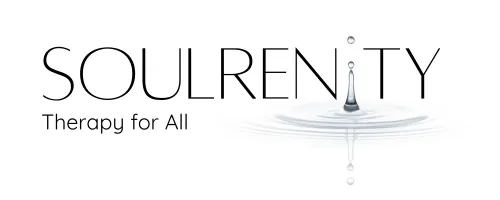FAQ's
How Do I Book An Appointment
Simply Fill out an appointment request form and someone from the team will reach out to you to start the process.
Where are you located?
Our offices are located at 1601 St. Paul Str.2nd Fl rBaltimore, Maryland US
We can also conduct sessions virtually.
What if I don't know what kind of therapy I need
No worries at all! It’s completely normal to feel unsure about where to start. During your first session, we’ll talk about what’s been going on in your life and what you’d like to work on. Based on that, I’ll guide you toward the type of therapy that best fits your needs—whether it’s individual, couples, family therapy, or something more specific. Think of it as a collaborative process—we’ll figure it out together!
Do you take insurance, and how does that work?
The first step is to check your mental health coverage by calling your insurance provider. Here are a few questions to ask:
• What are my mental health benefits?
• How much do they cover per session?
• How many sessions are covered?
• What’s the cost for an out-of-network provider?
• Do I need a referral from my primary care physician?
Understanding your coverage will help you know what to expect financially before starting therapy
How can therapy help me?
Therapy offers more than just a listening ear. It’s a space where you can gain valuable support, learn new problem-solving skills, and develop coping strategies for anything from anxiety and depression to relationship struggles and stress. Whether you’re facing unresolved childhood issues, grief, or simply feeling stuck, therapy can provide a fresh perspective and guide you toward solutions. The benefits include better understanding yourself, improving your relationships, and learning ways to handle life’s challenges. It’s a toolbox for personal growth, and the more you put into it, the more you’ll get out of it.
Do I really need therapy? I can usually handle my problems.
It’s great that you’ve been able to navigate life’s challenges so far, but even the strongest people sometimes need extra support. Think of therapy as a resource, not a last resort. Having enough self-awareness to seek help when you need it is a sign of strength. Therapy can give you new tools to break negative patterns, avoid future triggers, and tackle life’s hurdles more effectively. There’s no shame in asking for help—it’s an investment in your well-being.
Why do people go to therapy and how do I know if it is right for me?
People seek therapy for all sorts of reasons—maybe they’re going through a major life change like a new job, a breakup, or a move, or perhaps they’re dealing with stress, anxiety, or self-doubt. Others come to therapy for personal growth or to better understand themselves. If you’re feeling stuck, overwhelmed, or just want to work on being the best version of yourself, therapy can help. It’s about being ready to take on life’s challenges with new perspectives and support.
What is therapy like?
Therapy isn’t one-size-fits-all. Your sessions will be tailored to you, your experiences, and your goals. Typically, you’ll talk about what’s happening in your life, your personal history, and any progress or insights since your last session. Some people come for short-term help with specific issues, while others use therapy as a space for ongoing personal development. Either way, consistency is key, and your therapist may suggest activities outside of sessions (like journaling or reading) to support your growth. It’s a collaborative process, and the more you engage, the more you’ll benefit.
What about medication vs. psychotherapy?
Medication can be a useful tool for managing symptoms, but it often addresses the surface of the problem. Therapy, on the other hand, helps you dig deeper into the root causes of your struggles and develop long-lasting solutions. Sometimes, a combination of both therapy and medication is the most effective route. It’s all about what works best for you, and it’s important to work with your therapist and doctor to create a plan that meets your needs.
Does what we talk about in therapy remain confidential?
Absolutely. Confidentiality is at the heart of therapy—it creates a safe space for you to share openly without fear. What you talk about with your therapist stays between you two, unless you give written permission to share it with others, like your doctor or attorney. However, there are a few exceptions when your therapist is legally required to break confidentiality: if there’s suspected abuse or neglect of a child, elder, or dependent adult, or if you’re in danger of harming yourself or someone else. Your safety, and the safety of others, comes first.
@ Copyright 2024 - SOULRENITY | All rights reserved



